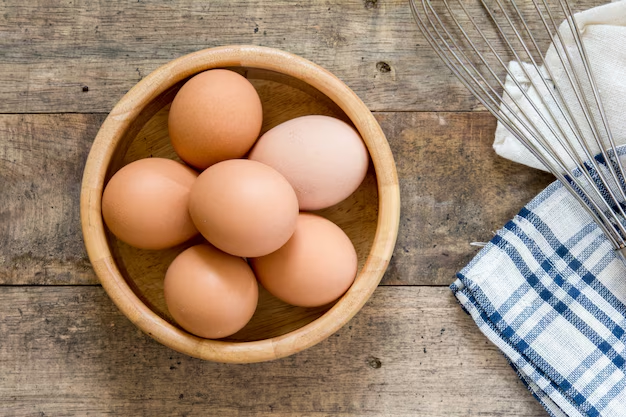The Essential Guide to Storing Eggs in the Refrigerator: How Long Do They Really Last?
Eggs are a staple in most households, versatile enough to be whisked into an omelet or baked into a cake. But amidst all the culinary uses, one question lingers: how long do eggs really last in the refrigerator? This guide will delve into the factors affecting the shelf life of eggs, tips for storing them properly, and signs to look for if they might have gone bad.
Understanding Egg Longevity
Freshness is Key
When you buy a carton of eggs, their journey to your refrigerator might have started weeks earlier. It's crucial to note that the sell-by date on the carton doesn’t necessarily match the "use-by" period, which might extend far beyond that date when proper storage methods are employed.
Why Do Fresh Eggs Last Longer?
- Egg Quality: Those collected recently have a firmer yolk and thicker albumen (egg white), which degrades over time.
- Protective Coating: Fresh eggs have a protective coating which slows down moisture loss and bacterial penetration.
Refrigeration Timeframe
General Guidelines for Storing Eggs:
- Refrigerated Raw Eggs in Shell: Typically last 3-5 weeks.
- Raw Eggs Out of Shell: Lasts about 2-4 days.
- Hard-boiled Eggs: Best consumed within one week.
Tip: Always store your eggs at temperatures below 40°F (4°C) to keep them safe and fresh.
The Role of Egg Cartons
Cartons are more than just packaging. They protect eggs from absorbing strong odors and flavors through their porous shells and help prevent moisture loss. Always store eggs in their original carton for maximum freshness.
Optimal Storage Practices
Storing Eggs in the Refrigerator
1. Use the Main Compartment
- This area maintains a more consistent temperature compared to the door, which can fluctuate when opened and closed frequently.
2. Keep Eggs in Their Carton
- Shields them from absorbing other odors.
- Prevents damage from light exposure.
3. Arrange Eggs Properly
- Position eggs with the larger side up. This helps keep the yolk centered.
The Do’s and Don'ts of Egg Storage
Do:
- Check for cracks and discard any damaged eggs.
- Write the purchase date on the carton as a reminder of their freshness window.
Don't:
- Wash eggs before storage, as this removes their protective bloom.
- Store them near strong-smelling foods unless adequately contained.
How to Identify Spoiled Eggs
Visual and Physical Tests
Check the Shell
- Fresh eggs have a chalky appearance. Shiny eggs may indicate they’re older.
Inspect the Egg White and Yolk
- Fresh egg whites are thick and cloudy. Any visible changes, such as thinning or developing a pinkish hue, suggest spoilage.
Float Test
- Place the egg in a bowl of water. Fresh eggs will sink and lay flat, while older eggs will float. This is due to the size of the air pocket that increases as moisture evaporates through the shell.
Odor Check
A reliable way to check an egg’s freshness is by smell. If it emits a sulfur or foul odor after cracking, it’s likely spoiled and should be discarded.
The Importance of Egg Safety
Salmonella Awareness
Eggs can carry salmonella, a bacteria potentially harmful if consumed. Refrigeration slows bacterial growth, emphasizing the need for proper storage. Always practice good hygiene by washing hands and cooking surfaces after handling raw eggs.
Cooking Temperature Matters
Always cook eggs thoroughly until both the white and yolk are firm. This ensures any lingering bacteria are killed, reducing the risk of foodborne illnesses.
Creative Ways to Use Up Old Eggs
Before your eggs reach the end of their usability, consider these options:
- Hard-boil for quick-snack access.
- Bake them into a quiche or frittata.
- Pickle eggs for tangy enjoyment.
- Whip up a batch of egg-based desserts, such as custards or sponge cakes.
Egg Storage Recap:
| Storage Method | Duration | Tips |
|---|---|---|
| Refrigerated Whole Eggs | 3-5 weeks | Use the main compartment |
| Raw Beaten Eggs | 2-4 days | Store in an airtight container |
| Hard-boiled Eggs | 1 week | Keep in the shell |
Handling Leftover Egg Yolks and Whites
Unused yolks or whites shouldn’t go to waste. Here's how to make the most of them:
- Yolks: Mix with a pinch of salt or sugar, then refrigerate for future baking.
- Whites: Freeze them for meringues or pavlovas at a later date.
Incorporating these leftover strategies postpones waste and ensures you maximize the nutritional benefits of eggs.
Final Considerations
Understanding the intricacies of egg preservation not only ensures safety but maximizes their delicious potential. Always remember to monitor egg freshness and adhere to proper storage techniques. Doing so extends their shelf life and provides peace of mind with every meal.
By integrating these practical storage techniques, you’ll make the most of your eggs, savoring their versatility and ensuring they contribute healthily and safely to your kitchen endeavors. 🥚✨

